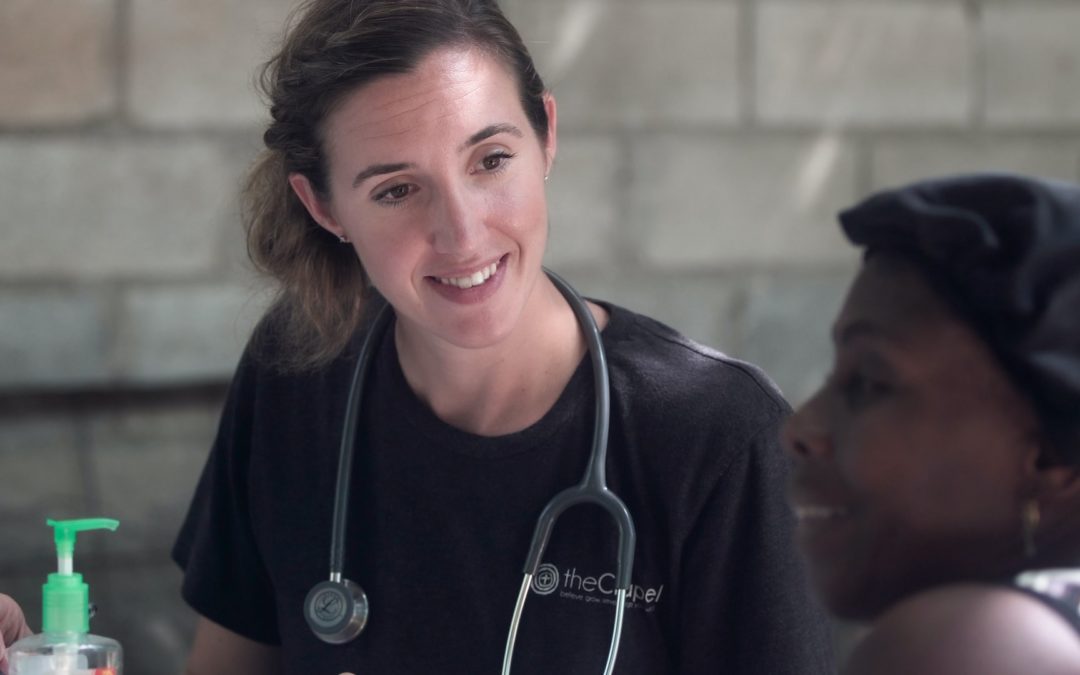Open-ended questions are questions that invite explanation, opinion, or personal stories. Unlike yes-or-no questions, they don’t limit the answer. Instead, they encourage people to think, reflect, and express themselves more freely.
If you’ve ever wanted to have better conversations, get someone to open up, or learn more during an interview or meeting, open-ended questions are one of the most powerful tools you can use. They build connection, reveal insights, and make people feel heard.
In this article, you’ll find 100 of the best open-ended question examples, each clearly explained. Use them to improve your communication in everyday life, relationships, work, and beyond.
What Is an Open-Ended Question?
An open-ended question is a type of question that cannot be answered with a simple “yes” or “no” or a one-word response. Instead, it encourages a person to explain, describe, or share their thoughts, feelings, or experiences in more detail. These questions typically begin with words like “what,” “how,” “why,” or “tell me about.”
How to Tell If a Question Is Open-Ended
Here’s a simple way to check if your question is open-ended:
-
Closed-ended: Can it be answered with “yes,” “no,” or a single word?
-
Open-ended: Does it ask the person to explain, describe, or share an experience?
100 Best Examples of Open-Ended Questions
1. What was the best part of your day?
This lets the person reflect and share a personal story. There’s no right or wrong answer.
2. How did you come to that decision?
Instead of just asking why, this encourages someone to walk through their thought process.
3. What do you enjoy most about your job?
This focuses on feelings and preferences, not just facts.
4. How do you usually spend your weekends?
This question invites someone to talk about lifestyle and interests.
5. What was your experience like working on that project?
It gets into real-life emotions, challenges, and wins.
6. What matters most to you in a friendship?
It reveals personal values without pushing for a quick answer.
7. Can you describe a time you felt really proud of yourself?
This opens up meaningful storytelling and self-reflection.
8. What kind of books do you like to read, and why?
Goes beyond a yes/no about reading—shows personality.
9. How do you define success for yourself?
This uncovers someone’s deeper goals or motivations.
10. What challenges have shaped who you are?
Encourages a reflective and honest response.
11. What do you think makes a good leader?
Great for prompting opinions, not just facts.
12. How do you usually handle stress?
It leads to personal habits, not just one-word answers.
13. What are your favorite ways to stay motivated?
It highlights what keeps someone going—insightful and useful.
14. What’s something you’ve learned this year that surprised you?
Encourages thought and self-awareness.
15. Can you walk me through your creative process?
Perfect for learning how someone thinks or works.
16. What kind of environment helps you do your best work?
This points to preferences, not just workplace features.
17. How do you approach making tough decisions?
Promotes deep thought and openness.
18. What does your ideal vacation look like?
Fun, easy to answer, and full of detail.
19. What do you value most in your daily routine?
Leads to personal habits and what matters.
20. What role does music play in your life?
This allows emotional and personal answers.
21. What’s one lesson you’ve learned the hard way?
Very personal—often leads to meaningful conversation.
22. What are you most curious about right now?
Taps into learning and interests.
23. What does a good day look like for you?
Simple and effective at opening conversation.
24. How do you usually start your mornings?
Reveals daily life and routine in a non-invasive way.
25. What makes you feel truly relaxed?
Insightful, and everyone has a different answer.
26. How do you stay focused when you feel distracted?
Leads to real advice and personal strategies.
27. What kind of people do you enjoy working with?
It uncovers values and working style.
28. What inspires you to try new things?
This opens space for motivation and risk-taking.
29. What’s your favorite memory from childhood?
Easy to relate to and encourages storytelling.
30. How do you deal with failure?
A deep, honest question about growth.
31. What’s something you wish more people knew about you?
Personal and vulnerable, but respectful.
32. What makes you feel appreciated?
Great question for building stronger relationships.
33. How do you define happiness?
Simple, deep, and everyone sees it differently.
34. What’s something new you’ve tried lately?
It invites the person to talk about recent experiences.
35. What kind of legacy do you want to leave?
A powerful way to get someone thinking about meaning.
36. What motivates you to keep going on tough days?
Everyone answers this differently—emotionally powerful.
37. How do you like to celebrate achievements?
Helps understand someone’s style and personality.
38. What’s something you’ve changed your mind about recently?
Encourages open-mindedness and thoughtfulness.
39. What do you like most about your favorite hobby?
Light, open, and personal.
40. What helps you build trust with others?
Leads to an honest, values-based discussion.
41. How do you feel when you’re out of your comfort zone?
Promotes emotional awareness and self-reflection.
42. What advice would you give to your younger self?
Always brings interesting and meaningful answers.
43. What does “balance” mean in your life?
Open to interpretation—no single right answer.
44. How do you handle unexpected changes?
Tells you a lot about someone’s mindset.
45. What makes a relationship meaningful to you?
Invites openness and personal views.
46. What part of your life do you feel most confident in?
Gives space to talk about strengths.
47. How do you like to learn new things?
Goes deeper than just saying “I like learning.”
48. What’s something that always lifts your mood?
Easy to answer and makes people smile.
49. What does “home” mean to you?
Simple, yet emotional and open.
50. What’s something you’re looking forward to?
Future-oriented and positive.
51. How do you like to spend time alone?
Personal, not intrusive.
52. What have you done that you once thought you couldn’t?
Celebrates growth and resilience.
53. What makes you feel creative?
Broad and inspiring.
54. What helps you recharge when you feel drained?
Helpful and health-focused.
55. How do you usually react to criticism?
Goes beneath the surface.
56. What does personal growth look like to you?
Very open and unique to each person.
57. What habits have helped you improve your life?
Invites sharing and maybe even advice.
58. What’s a cause or idea you care deeply about?
Ideal for discussing passions.
59. How do you stay organized?
Turns into an easy-to-share routine.
60. What do you usually notice first when meeting someone?
Shows observation skills and social insight.
61. What’s something small that makes a big difference for you?
Encourages thought and appreciation.
62. What does being kind mean to you?
Emotionally meaningful and open.
63. How do you manage your time when you’re overwhelmed?
Leads to personal insights.
64. What’s a tradition you love?
Easy to answer, and often nostalgic.
65. What do you enjoy talking about for hours?
Shows passion and personal interests.
66. How do you handle being misunderstood?
Goes deeper than typical small talk.
67. What kind of support helps you most?
Leads to self-awareness and openness.
68. What’s something you’re still learning about yourself?
Encourages vulnerability and reflection.
69. What brings meaning to your everyday routine?
Ordinary, yet powerful.
70. How do you stay connected to people who matter?
Promotes thought about relationships.
71. What’s something you want to learn more about?
Optimistic and curiosity-driven.
72. How do you want to grow this year?
Personal and forward-looking.
73. What moments make you feel most alive?
Emotionally powerful.
74. What’s one change that made your life better?
Easy to personalize.
75. What does confidence mean to you?
Invites reflection.
76. How do you know when you’ve made a good decision?
Unique and thoughtful.
77. What’s something you’re grateful for lately?
Gratitude always opens the heart.
78. How do you handle moments of doubt?
Shows coping and self-awareness.
79. What’s something you’ve done just for the joy of it?
Light and heartfelt.
80. How do you decide who to trust?
Emotionally deep.
81. What brings you peace when life feels chaotic?
Emotionally resonant.
82. How do you reflect on past experiences?
Good for learning and perspective.
83. What’s something you’ve taught someone else?
Reflects impact and values.
84. How do you express yourself creatively?
Open and inspiring.
85. What does kindness look like in action?
Invites real-life examples.
86. How do you face your fears?
Empowering and honest.
87. What makes you feel hopeful?
Encouraging and personal.
88. How do you stay grounded?
Leads to honest, helpful answers.
89. What’s something you’ve forgiven yourself for?
Very personal and open.
90. How do you define strength?
Big question, many ways to answer.
91. What’s a decision you’re glad you made?
Promotes storytelling.
92. What energizes you most in a conversation?
Great for social insights.
93. How do you deal with boredom?
Everyday question with thoughtful potential.
94. What’s something you feel passionate about creating?
Inspires purpose and creativity.
95. How do you usually show appreciation to others?
Opens conversation about values.
96. What are your top priorities right now?
Practical, yet reflective.
97. What’s something about your culture that you love?
Promotes sharing and pride.
98. How do you respond when things don’t go as planned?
Uncovers coping styles.
99. What’s a place that has special meaning to you?
Personal and memory-rich.
100. What’s a question you wish people would ask you more often?
Very meta—and a perfect way to end.
When and Where to Use Open-Ended Questions
Open-ended questions work well in many situations:
-
Conversations – Deepen friendships, ask more thoughtful questions
-
Interviews – Learn more about someone’s experience or personality
-
Teaching or coaching – Help others think critically and reflect
-
Self-reflection – Use them in journaling or personal growth
-
Parenting – Get your child to express thoughts and feelings
-
Customer feedback – Get better insights than just ratings or yes/no
Wherever people talk, open-ended questions help you understand better—and be understood.
Open-ended questions often start with words like:
-
What
-
How
-
Why
-
In what way
-
Tell me about
They encourage deeper thinking and longer answers. That’s what makes them so useful.
Why Open-Ended Questions Matter More Than You Think
Most people don’t think much about the way they ask questions. But the difference between a closed-ended and an open-ended question can completely change a conversation.
Ask someone, “Did you have a good day?” and you’ll usually get one word back: “Yeah.”
But ask, “What was the best part of your day?”—and you open a door. Now they have to think. Now they have to share. And now you’re both part of something more real.
That’s the power of an open-ended question. It’s not just about getting answers. It’s about starting conversations that actually go somewhere.
In daily life, these questions are often the key to better relationships. You get to know your spouse better. Your kids talk more. Your coworkers feel heard. Even small changes in how you ask can build more trust and understanding.
In interviews, they help you learn who someone really is—not just what’s on their resume. In customer service, they show people you actually care what they think. And in friendships, they help you listen instead of just waiting to speak.
People open up when they feel safe. Open-ended questions help create that space.
They’re useful, simple, and surprisingly easy to start using. And the more you use them, the better you get at asking them. You start to notice how people light up when they’re asked something real.
It’s a small skill with a big impact.
Read also
The Most Popular on BitGlint

35 Benefits of Studying History
The study of history provides us with a wealth of knowledge about the past and enables us to understand the present...

100+ Things That Are Cold
Cold is something most people understand the moment they feel it. You step outside on a freezing morning. You grab a...

30 Benefits of Studying Psychology
Psychology is a fascinating field that explores the human mind and behavior. Studying psychology can provide you with...

100 Non-Digital Things List
In everyday life, there are still hundreds of objects, tools, and materials that exist completely outside the digital...

100+ Folklore Examples, Types, and Meanings
Folklore connects people through shared stories, beliefs, and traditions. In this article, you will find over 100...

Top 50 Essential Train Travel Tips
Train travel is one of the most enjoyable and fascinating ways to explore a new destination. From scenic routes to...

30 Benefits of Studying Nursing: A Rewarding Career Path
Nursing is a highly respected and in-demand profession that offers a wide range of benefits to those who choose to...
Get Inspired with BitGlint
The Latest
30 Emotional Pleasure Examples & Meaning
Emotional pleasure comes from experiences that satisfy the heart, not just the senses. It’s the feeling you get when you're deeply moved, reassured, or connected to something meaningful. While physical pleasures are easy to define - like a good meal or a warm bath -...

20 The Most Important Interpersonal Skills
In this article we will focus on the 20 most important interpersonal skills, including active listening, empathy, conflict resolution, and effective communication, that can help individuals improve their interpersonal relationships both personally and professionally....
20 Essential Hard Skills for Nurses
As healthcare professionals who play a critical role in patient care, nurses are required to possess a wide range of skills to perform their duties effectively. While some of these skills are innate, many can be learned and honed over time through education and...
20 Examples of Time and Its Meaning
Time is something we all experience, yet it can feel like a mystery. Have you ever noticed how a minute can fly by when you're having fun, but drag on forever in a boring meeting? This curious nature of time affects us all, shaping our days and influencing our lives...

